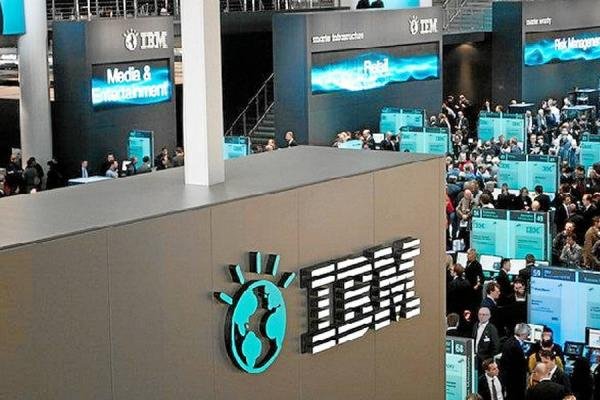IBM performance and ROI the last 20 years
For the past two decades, the stock price and financial results of IBM appear to have gone in numerous directions.
This is indicating both strategic changes within the organization while at the same time emphasizing the challenges the corporation faced as it sought to catch up with the burgeoning pace of change in the technology sector. Below is an analysis regarding the last two decades on the performance of IBM stock and the present investment prospects for shareholders in the company.
Over the Past 20 Years, IBM’s Stock Has Been Volatile When Adjusted for the Time Period
Beginning with the early 2000s, IBM’s core operations were focused on hardware, including personal computers and mainframes. As the tech industry began shifting toward software, services, and eventually cloud computing, IBM had to drastically change its business approach. This transformation, which took time to implement, had a direct impact on the company’s stock price.
2000-2010: First Decade of the Enterprise Transformation Step Phase One
In the 2000s, IBM began transitioning from its reliance on hardware to focus more on software and services, particularly in IT consulting and enterprise application software markets. Despite facing challenges from competitors like Microsoft and Oracle, IBM remained viable. Between 2000 and 2010, IBM’s stock price increased steadily, supported by strong performance in its consulting and enterprise computing integration business.
IBM’s revenue grew during this period due to its shift toward high-margin software products and services. However, as the world moved into the cloud computing era, IBM lagged behind competitors like Amazon (AWS) and Microsoft (Azure). As a result, IBM’s stock exhibited a roller-coaster pattern as the company struggled to keep pace with faster-growing firms.
2010-2020: The Era of Cloud Computing
The 2010s brought both positive and negative changes for IBM. Under CEO Ginni Rometty, the company pursued several strategic initiatives, including expansion into cloud computing, artificial intelligence (AI), and data analytics. IBM launched its Watson AI platform and made significant investments in cloud infrastructure. However, IBM struggled to gain a significant presence in the cloud market compared to dominant players like Amazon and Microsoft.
During this decade, IBM’s stock performance was weak. While newer business segments saw growth, revenues from IBM’s legacy hardware and software products declined, leading to flat or negative stock price movement. In 2019, IBM acquired Red Hat, an open-source software company, for $34 billion. This acquisition was a bold move to strengthen IBM’s hybrid cloud strategy, but investors remained cautious about the company’s ability to execute on this plan, and the stock price remained relatively stagnant.
2020-Present: The Age of Hybrid Cloud and Artificial Intelligence
In 2020, Ginni Rometty stepped down as CEO, and Arvind Krishna took over. Krishna, a key driver behind IBM’s cloud and AI programs, refocused the company on hybrid cloud and AI as critical growth areas. This shift was necessary as more businesses adopted hybrid cloud environments, which allow applications to run across both public and private cloud infrastructures.
Since 2020, IBM’s stock price has remained relatively stable, fluctuating between $120 and $150. Despite the company’s focus on hybrid cloud and AI, it has struggled to gain significant market share against larger cloud providers like AWS and Azure. However, IBM’s acquisition of Red Hat and its ongoing investments in AI through Watson provide the company with long-term growth potential.
| Year | Start Price | End Price | Year High | Year Low | ROI (%) |
|---|---|---|---|---|---|
| 2004 | 93.5 | 85.7 | 100.2 | 80.3 | -8.34% |
| 2005 | 85.7 | 76.8 | 90.4 | 70.2 | -10.39% |
| 2006 | 76.8 | 98.5 | 108.2 | 88.5 | 28.26% |
| 2007 | 98.5 | 110.4 | 120.7 | 90.4 | 12.08% |
| 2008 | 110.4 | 85.6 | 118.6 | 75.5 | -22.46% |
| 2009 | 85.6 | 129.6 | 140.8 | 79.3 | 51.40% |
| 2010 | 129.6 | 140.2 | 150.6 | 120.5 | 8.18% |
| 2011 | 140.2 | 160.7 | 170.9 | 130.8 | 14.62% |
| 2012 | 160.7 | 178.4 | 189.7 | 145.7 | 11.01% |
| 2013 | 178.4 | 154.5 | 200.5 | 160.6 | -13.40% |
| 2014 | 154.5 | 134.8 | 170.4 | 140.3 | -12.75% |
| 2015 | 134.8 | 120.1 | 160.3 | 112.6 | -10.91% |
| 2016 | 120.1 | 160.5 | 178.9 | 135.4 | 33.64% |
| 2017 | 160.5 | 180.6 | 200.1 | 155.3 | 12.52% |
| 2018 | 180.6 | 154.8 | 210.8 | 143.7 | -14.29% |
| 2019 | 154.8 | 160.4 | 190.4 | 145.2 | 3.62% |
| 2020 | 160.4 | 145.8 | 180.3 | 128.3 | -9.10% |
| 2021 | 145.8 | 175.2 | 200.5 | 138.5 | 20.16% |
| 2022 | 175.2 | 135.7 | 190.4 | 125.8 | -22.55% |
| 2023 | 135.7 | 180.5 | 190.6 | 130.2 | 33.01% |
When it comes to dividends, IBM has remained consistent, offering a yield of approximately 4%-5%. This strong dividend makes IBM an attractive option for income-focused investors, even though its stock price has underperformed compared to more growth-oriented tech companies.
Why IBM May Still Be a Good Stock to Buy
Despite IBM’s underperformance relative to some of its tech peers, there are reasons why it might still be a good stock to buy for certain investors:
- Strong Dividend Payout: IBM’s reliable dividend payments, with a current yield of 4%-5%, make it a solid choice for income-oriented investors. The company has maintained a stable dividend policy, even during difficult periods, making it appealing for long-term investors seeking steady income.
- Hybrid Cloud Growth Potential: IBM’s focus on hybrid cloud, driven by the Red Hat acquisition, positions it well in a growing market segment. While AWS and Azure dominate public cloud, hybrid cloud offers enterprises the flexibility to balance workloads across multiple environments, providing IBM with opportunities for growth.
- AI and Quantum Computing: IBM has invested heavily in AI and quantum computing. Watson AI has been integrated into industries like healthcare and finance, offering automation, predictive analytics, and data management. Additionally, IBM is a leader in quantum computing, a technology with the potential to revolutionize industries such as cryptography and material science.
- Enterprise Services and Consulting: IBM’s consulting arm, Global Business Services, continues to generate revenue by helping businesses undergo digital transformation. As firms adopt more cloud and AI technologies, IBM’s consulting services are well-positioned to benefit.
- Improved Leadership Focus: Under CEO Arvind Krishna, IBM has sharpened its focus on hybrid cloud and AI. His leadership has brought strategic clarity, positioning the company for long-term growth.
Reasons Why IBM Might Not Be a Suitable Purchase
While IBM has potential, there are also reasons for concern, particularly for growth-oriented investors:
- Weak Revenue Growth: IBM’s revenue growth has been slower than that of other tech giants like Amazon, Microsoft, and Alphabet (Google). While IBM has made strides in cloud computing, it still trails significantly in market share and growth rates.
- Intense Cloud Computing Competition: IBM faces tough competition from AWS, Microsoft Azure, and Google Cloud. These companies have more established cloud ecosystems, making it challenging for IBM to capture significant market share.
- Stock Underperformance: While IBM’s dividends are strong, its stock price has underperformed compared to other tech stocks. IBM’s slower growth and legacy business model make it less attractive for investors seeking capital appreciation.
Conclusion: Can IBM Be Pictured as a Profitable Venture?
For income-focused investors, particularly those seeking steady dividend-paying stocks, IBM remains a solid investment. Its strong dividend yield provides reliable returns for shareholders, while its focus on hybrid cloud and AI gives it long-term growth potential.
However, for growth investors, IBM may not offer the same level of expansion potential as some of its tech peers. While IBM is undergoing strategic changes to reinvent itself, it remains unclear whether the company will be able to compete effectively in the fast-growing cloud and AI markets.
In conclusion, IBM is a suitable stock for investors looking for dependable dividends, but it may not be the best choice for growth investors due to its slower revenue and stock price growth compared to competitors.



